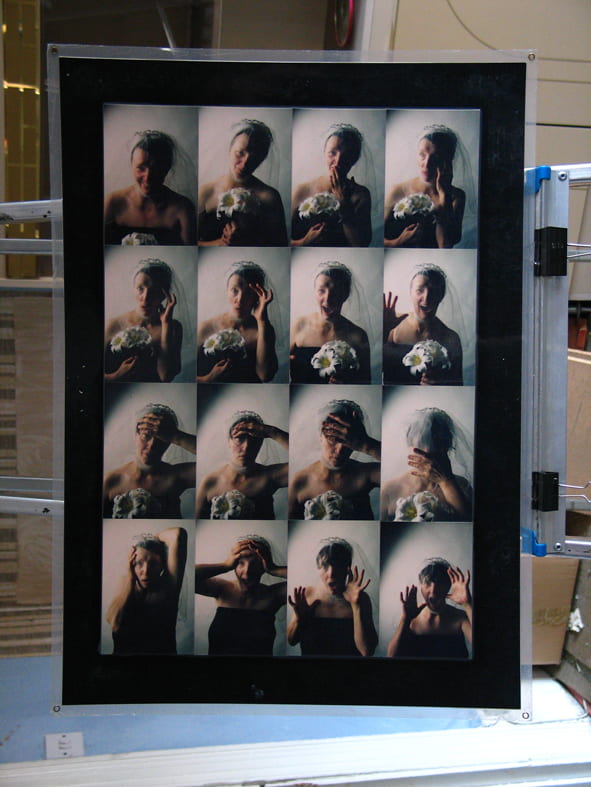The Jo Spence Memorial Library Archive is made up of material both from and about the life of photographer Jo Spence. Compiled and then generously donated to the History and Theory of Photography Centre at Birkbeck University by her former collaborator, Terry Dennett.
Jo Spence (1934-92) was a British writer, educator, and photographer, though her preferred term for herself was a ‘cultural sniper’. Instead of brandishing a gun, Spence used her camera to shoot and expose issues in culture: she was one of the first female photographers to confront the anxiety of seeing oneself in photographs.
In the 1970s, Spence collaborated with other women in the Hackney Flashers collective, and her interest in community photography projects is reflected in books in the collection relating to community, education, and photography.
Later, after her time as a mature student at the Polytechnic of Central London, Spence formed the collective the Polysnappers.
Another significant collaboration in Spence’s career was with Rosy Martin, with whom she developed the phototherapy method to revisit and re-stage crucial parts of their lives and development, using memory and childhood photographs to empower and re-write personal narrative.
The Jo Spence Memorial Library holds material on all of these projects as well as with her work with Terry Dennett on Camerawork Magazine and the Photography Workshop. In addition, the library includes much of Dennett’s own practice and library of photographic history and theory.
Throughout her life and career as a photographer, Jo Spence defied simple categorisation, working in a way that did not fit with conventional photography histories. Through its aggregate and varied materials, the library houses and preserves the heterogeneity of her life and work.
The Birkbeck collection holds most of the Jo Spence material in London, a large section of the JSMAL was donated by Terry Dennett to the Ryerson Image Centre in Toronto, to view their online collection, please click here.
Alexandra Symons Sutcliffe


Published by